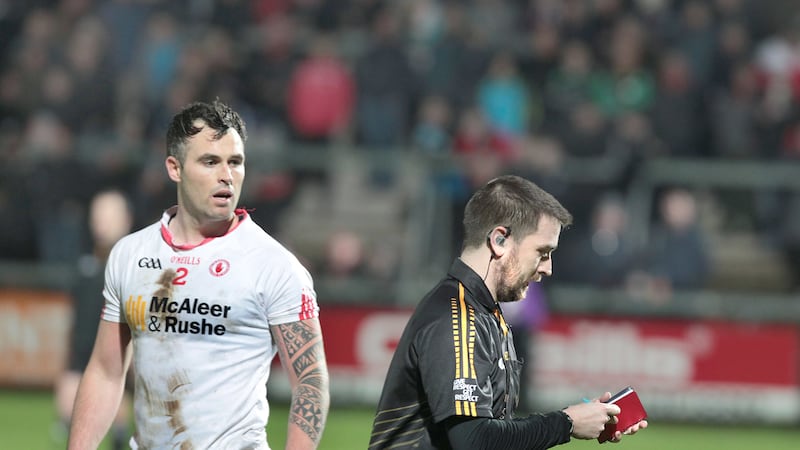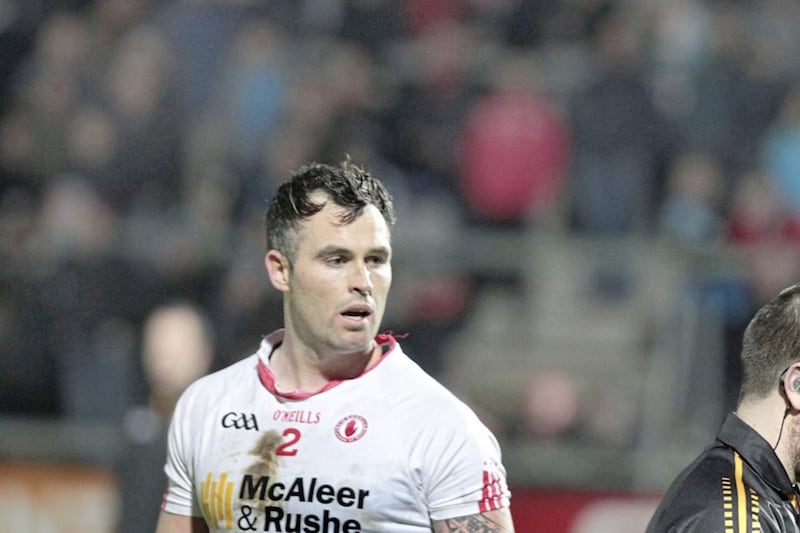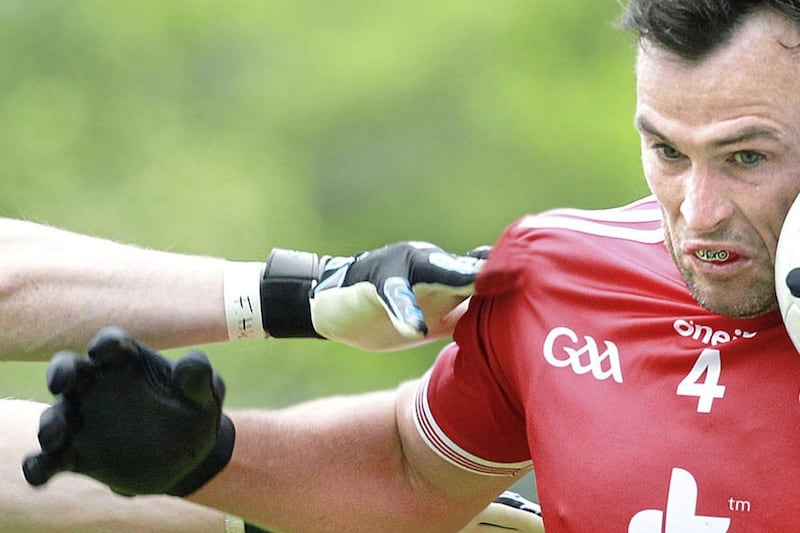FOR any man seeking redemption there is something admirable about turning your life around and positively influencing the people around you and society overall.
I admit that I do not read as much as I should. While you get the die-hard GAA fan who will go out and buy any of the umpteen autobiographies published each year, I am not one of these people.
It is only usually while waiting in the dentist’s or the doctor’s waiting room and the book happens to be sitting there that I would scan through the relevant chapters or pages I consider to be interesting.
The GAA book which had the most long-lasting impact in my eyes was Tony Griffin’s Screaming at the Sky. I could not put this one down. I admit I had not heard much of the former Clare hurler beforehand. However, I was pleasantly surprised as I found it a great read and we shared similar experiences - experiences I could relate to.
While on holiday this summer, I happened to see Paul McGrath’s autobiography lying around. Like Griffin’s book, I couldn’t put it down either. McGrath was an icon in Irish sport. In his prime, world class.
He scorned the limelight and, before penning the autobiography, little was known about McGrath privately. However, you were aware of plenty of stories floating around over the years.
It was a miracle McGrath even came through life as a professional soccer player, given his past. He survived adoption, constant bullying due to the colour of his skin and suffered a mental breakdown before the age of 16.
Throughout his professional career, he played games as an alcoholic. Some of his best performances came while still under the influence. His mental health anguish was laid bare throughout the book.
Eventually, McGrath did turn his life around and, having got the help he needed, I dare say he has barely put a foot wrong since. I always try to give the benefit of the doubt to any person in life. God knows we have all made mistakes. For the most part, everyone carries a guilty conscience in some respect.
Some see this as a natural part of growing as a person. Some see it as a way to empathise with others and, by sharing their experiences, give hope to others who may be experiencing similar issues.
The numerous books on the scourge of depression by current or ex-sports people can provide good reading and, in many cases, the proceeds go directly to their charity of choice. However, in Cathal McCarron’s case, I think he might have been wise not to publish a book at this stage of his career.
Sometimes, you have to question the wisdom of putting this stuff into the public domain from an autobiographical perspective. In my opinion, in seeking redemption of any kind in life, you keep your nose clean, your head down and your mouth shut.
McCarron is still playing. And as a good player of a relatively young age, he still has plenty of years left at inter-county level if he wants. So why do it? Especially considering that some of his experiences, as serialised in the press, were big enough stories past and present. Why go back for seconds?
Why role models irresponsibly use Tinder, Facebook or Twitter and leave themselves open to ridicule, I don’t know. In fact, a bit like James McClean, if you can’t use the resource without being subjected to a potential ban or slap on the wrists and fine from your club, don’t use the thing.
I think that everyone in top level sport has at some point in their lives experienced difficult and depressing times. Whether it was a career-ending injury, financial ruin or addiction to alcohol or gambling, when the help arrives these people, albeit with some exceptions, rarely look back.
If things do happen to go public, they may do an interview or two, perhaps to clarify things or give their side of the story, which is fair enough. One thing you could almost guarantee is that, in the majority, these unfortunate individuals choose not to go looking for trouble after such events in their lives and just get on with it.
I am afraid to say that, in McCarron’s case, whether it is his own fault or misfortune on his part, trouble seems to find him. The choices he is making are his alone and there are only so many times you can give someone the benefit of the doubt.
Oisín McConville, probably one of the best footballers to come out of Ulster, had a much-publicised battle with a gambling addiction. When you see the tremendous work he carries out in counselling others, you admire the man and his strength of character.
I admire anyone who comes out, tells their story and, in that way, helps others who may be afflicted with similar issues. With McCarron putting out his autobiography, you have to question the wisdom of airing the dirty linen in public.
I think that Gaelic players increasingly have a duty to conduct themselves as role models, especially in light of the publicity nowadays. For those around him, it takes a huge amount of loyalty and commitment to go through this whole process.
But it seems that in today’s society, the more controversial you are, the better. Yes, you will probably make a few pounds out of such controversy, But call me old fashioned, I think in some cases it’s just best to say nothing at all.
Maybe that viewpoint appears a bit cynical or perhaps I am being over-critical. I have no issue with an autobiography or those who want to share a success story, or indeed a horror one in some cases.
I am no book critic either, but I know a good idea when I see one. This was not a good idea. Particularly now. Out of Control? In Cathal McCarron’s defence, he got the title right.
A CLUB player's assoication. Well, it was only a matter of time. When the official GPA started in the 1990s, there were many who thought that it would never get enough support.
In fact, there were many who thought that the GAA would never endorse the player-led association. Many years later, or in GAA terms many short years later, the GPA are receiving almost €7m in funding and regularly sitting on GAA committees from inside the tent.
Can I see the CPA working? Yes. Even better, I would not be surprised to see the ‘official’ GPA and CPA eventually merge. In time, maybe this will be a stronger force for GAA change, especially for 98 per cent of the playing population.
I would say that Club GPA would be roundly endorsed by GPA critics and most of the GAA public. Whether they will be accepted by the GAA,
only time will tell, but it may only take a few ‘short’ GAA years...








